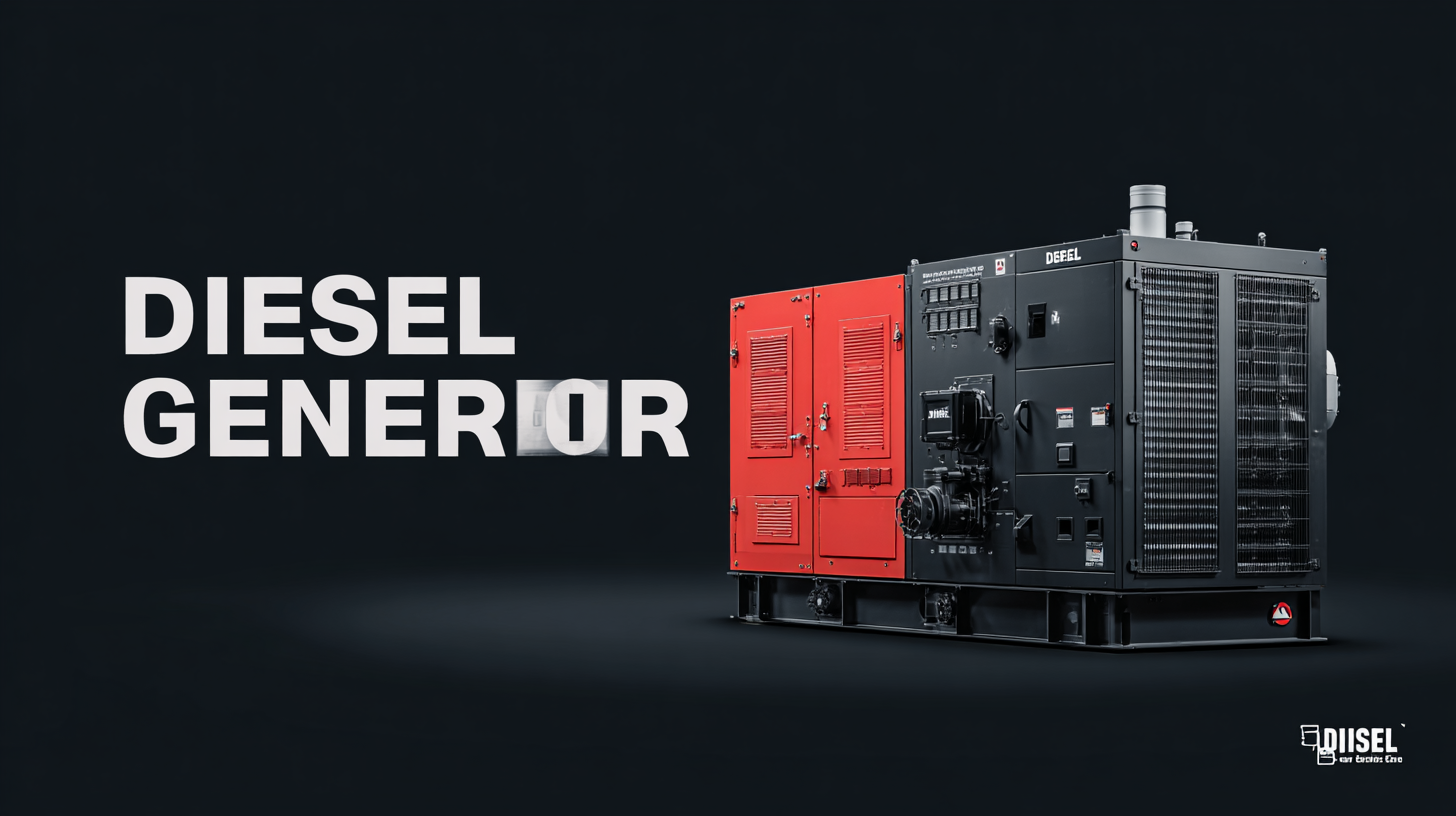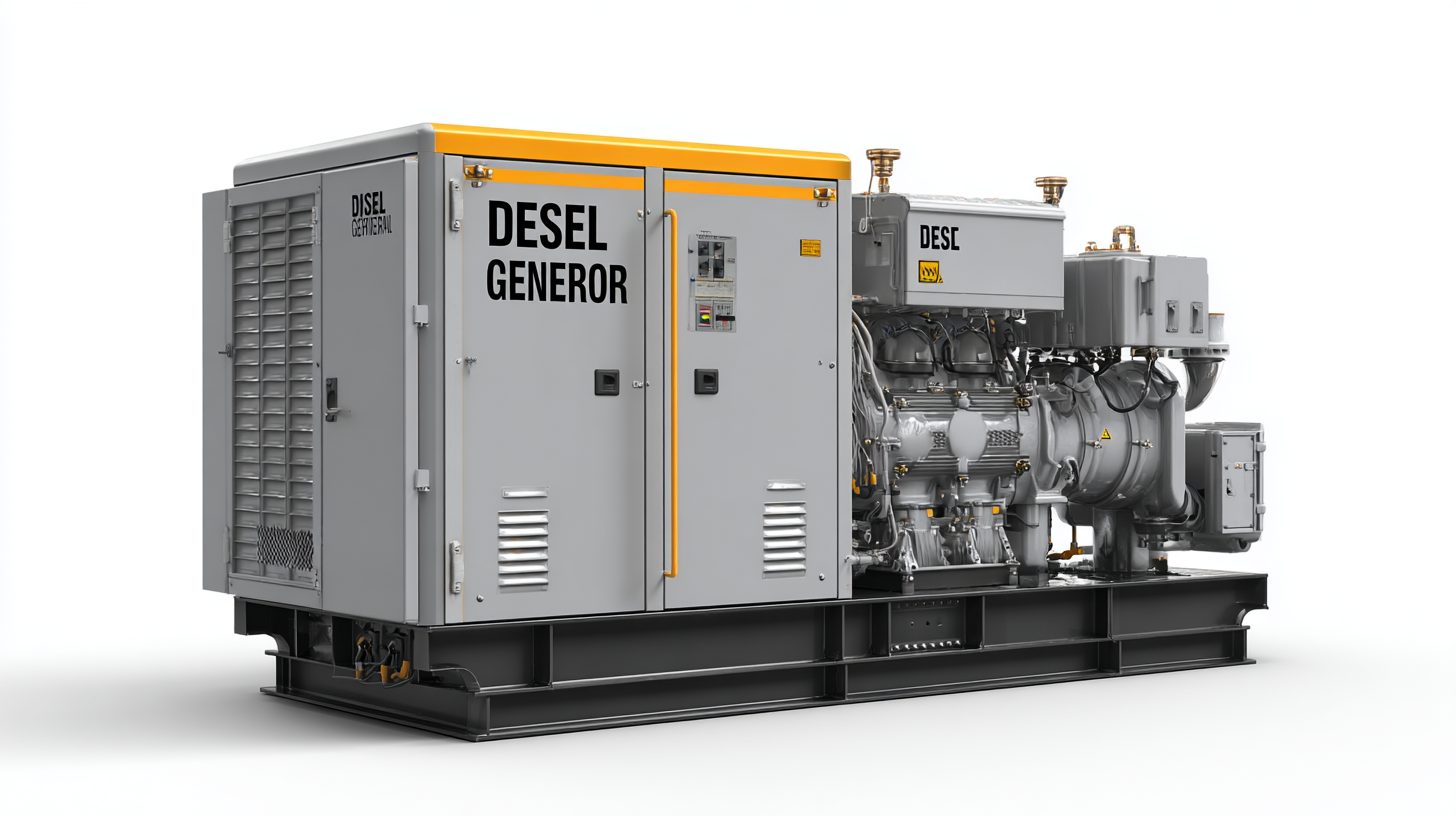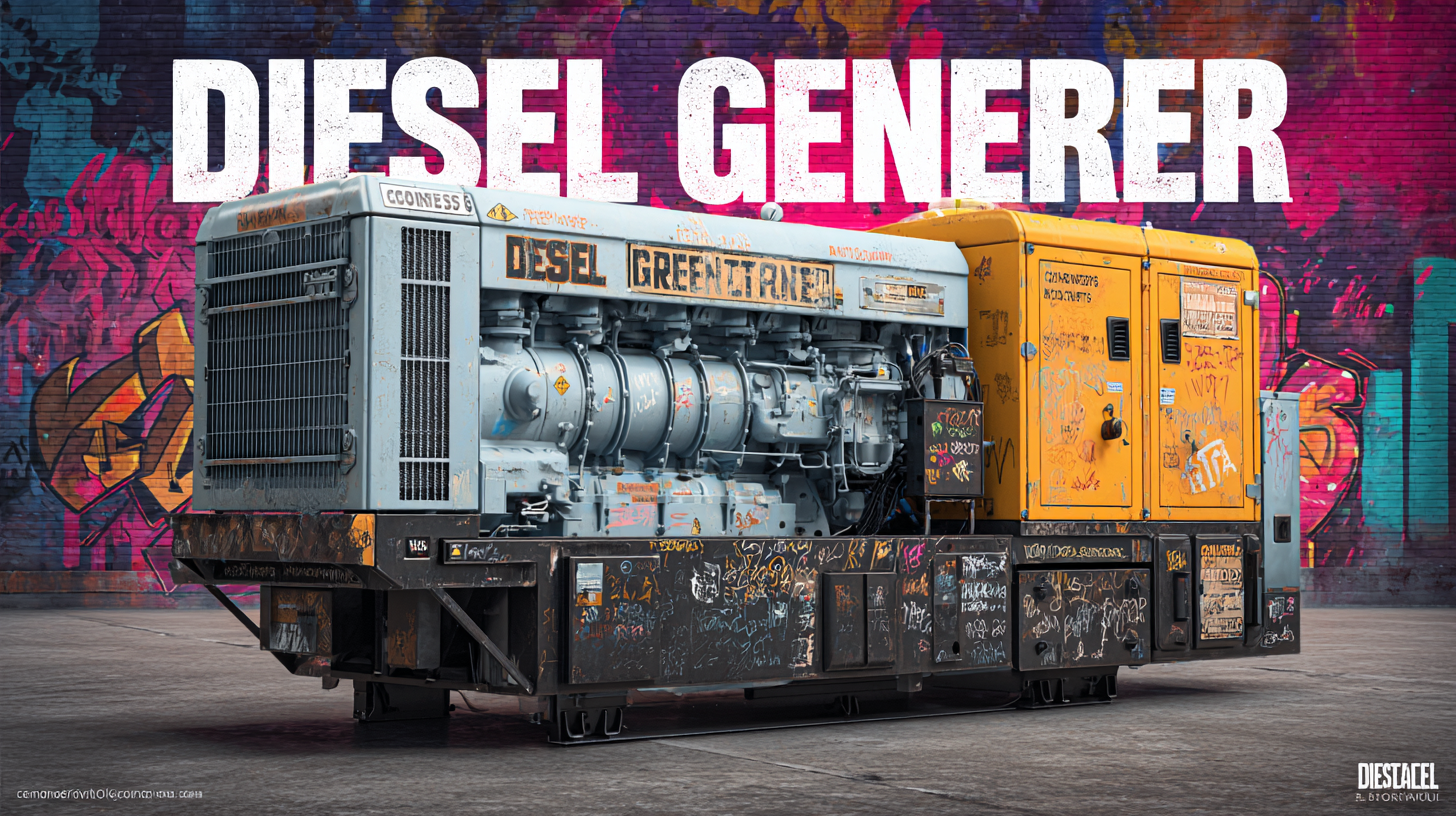
-
Home
-
Products
-
Service
-
About Us
-
Solution
-
Videos
-
News
-
Contact Us
Leave Your Message

In today's fast-paced industrial landscape, the demand for reliable power sources is skyrocketing, especially for large-scale applications. According to a recent report by the International Energy Agency, global energy consumption is projected to increase by 30% by 2040, underscoring the importance of efficient power solutions. Diesel Generators have emerged as a cornerstone for energy supply in various sectors, offering robustness and versatility. Specifically, the "Diesel Generator Large" category caters to the needs of industries such as construction, mining, and data centers, providing uninterrupted power during peak demands or emergencies. Industry experts suggest that investing in high-quality diesel generators can lead to long-term cost savings and operational efficiency, with power output capacities ranging from 50 kW to over 2000 kW, thereby accommodating diverse operational needs. The myriad advantages of diesel generators ensure they remain a preferred choice for enterprises aiming to achieve seamless productivity and energy security.

Diesel generators have become a staple in large-scale operations due to their unparalleled reliability and efficiency. One of the primary benefits of these generators is their ability to provide consistent power output, even in challenging conditions. This is particularly crucial for industries such as construction, mining, and manufacturing, where downtime can lead to significant financial losses. Diesel generators excel in delivering a steady supply of energy, allowing businesses to maintain continuous operations without interruption.
Another advantage of diesel generators is their versatility. They come in various sizes and configurations, making them suitable for a range of applications, from powering construction sites to serving as backup power for hospitals. Additionally, modern diesel generators are equipped with advanced technologies that enhance performance and reduce emissions, making them a more environmentally friendly option compared to older models. With features like automatic start-up and remote monitoring, these generators can be easily integrated into existing systems, providing businesses with a reliable and flexible power solution that meets their operational needs.
When choosing a high-performance diesel generator for large-scale applications, several key features should be prioritized to ensure efficiency, reliability, and versatility. First and foremost, consider the generator's power output and fuel efficiency. A generator with a higher kilowatt rating is crucial for meeting the massive energy demands of industrial applications, while fuel efficiency minimizes operational costs over time. Additionally, features like automatic voltage regulation (AVR) and low oil shutdown mechanisms enhance both performance and safety, providing peace of mind during operation.
Another critical aspect to assess is the generator’s build quality and durability. Robust construction materials and weather-resistant enclosures can significantly extend the lifespan of the equipment, making it suitable for various environments—be it construction sites, factories, or remote locations. Additionally, look for generators with advanced cooling systems to prevent overheating and ensure consistent performance during prolonged usage. Noise level is also an important consideration; opting for models that integrate soundproofing technology can dramatically reduce acoustic impact, especially in urban settings. By evaluating these features, you can select a diesel generator that meets your specific operational needs while delivering unparalleled performance.

The demand for diesel generators in large-scale applications continues to grow as industries seek reliable power solutions. A comparative analysis reveals that diesel generators have distinct advantages over alternative power sources, especially in terms of efficiency and fuel availability. Diesel generators are suitable for various power ratings, with segments categorized into below 75 kVA, 75-375 kVA, 375-750 kVA, and above 750 kVA, allowing businesses to choose a model that perfectly fits their needs.

Maintaining diesel generators is crucial for optimizing their performance and extending their operational lifespan, especially in large-scale applications. According to the Diesel Technology Forum, proper maintenance can enhance generator efficiency by up to 30%, reducing operational costs significantly. Regular servicing and inspections can prevent unexpected breakdowns, ensuring that these reliable power sources operate smoothly when needed.
One essential maintenance tip is to schedule routine oil changes, ideally every 250 to 300 hours of operation. Fresh oil not only lubricates the engine components effectively but also helps in controlling operating temperatures. Another vital practice is to regularly check and replace fuel filters. Clogged filters can hinder fuel delivery and lead to power loss or even generator failure. Research by the International Energy Agency indicates that maintaining clean fuel systems is pivotal for performance and longevity, especially in challenging environments.
Additionally, keeping an eye on the coolant and battery levels can prevent overheating and starting issues. A study from the National Electric Manufacturers Association highlights that about 60% of generator failures are linked to cooling system malfunctions. By adhering to these maintenance strategies, users can significantly enhance the efficiency and durability of their diesel generators, ensuring they remain reliable assets in power generation.
| Feature | Details |
|---|---|
| Power Output | 10 kW to 3000 kW |
| Fuel Efficiency | Up to 30% more efficient than gasoline generators |
| Noise Level | Silent operation options available (as low as 60 dB) |
| Durability | Designed for continuous operation; can last up to 30,000 hours with proper maintenance |
| Applications | Construction sites, hospitals, data centers, and large events |
| Maintenance Tips | Regular oil changes, check air filters, and keep the generator clean |
| Warranty | Typically 1 to 3 years, depending on the model |
The diesel generator market is evolving rapidly, with significant advancements anticipated over the next decade. The
diesel generator controller market, valued at approximately
$377.05 million in 2024, is projected to expand to around
$566.19 million by 2032, showcasing a steady growth rate of
5%. This trend indicates a robust demand for improved control systems,
which are vital for enhancing efficiency and reliability in industrial applications. As industries increasingly rely
on backup power, the importance of advanced generator technology cannot be overstated.
In the commercial diesel generator sector, the market is set to reach a staggering
$5.5 billion by 2024, with a compound annual growth rate of
8.3% expected from 2025 to 2034. This growth is primarily
driven by the increasing need for uninterrupted power supply across various industries, ensuring continuity in
operations even during grid failures. As industries modernize, integrating sophisticated features such as remote
monitoring and automated load management will become essential.
Tips: When selecting a diesel generator, consider factors
such as fuel efficiency, noise levels, and maintenance requirements to ensure optimal performance. Additionally,
stay updated on emerging technologies that could enhance the functionality of your diesel generators in large-scale
applications. Regularly review your power needs and upgrade your systems to remain competitive in an evolving market.